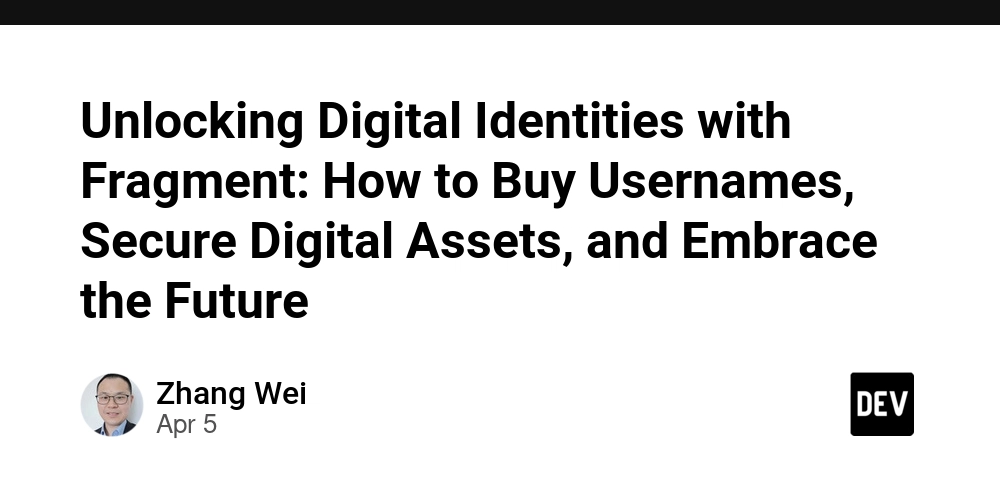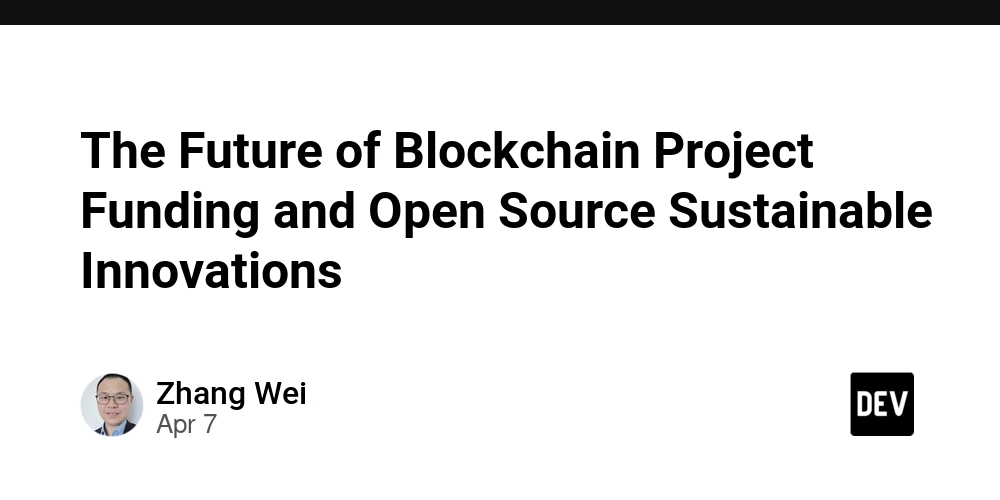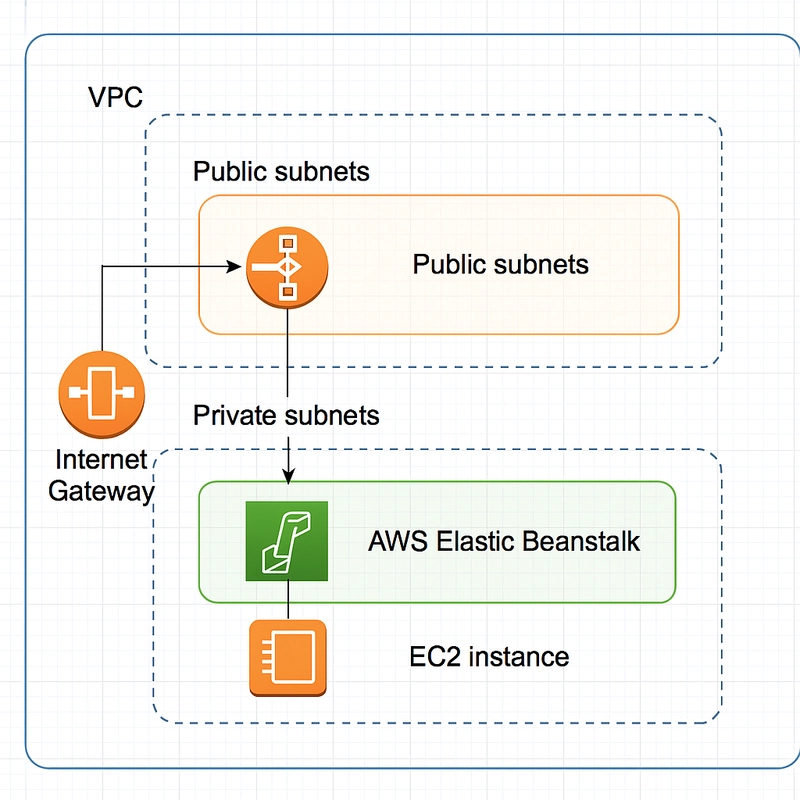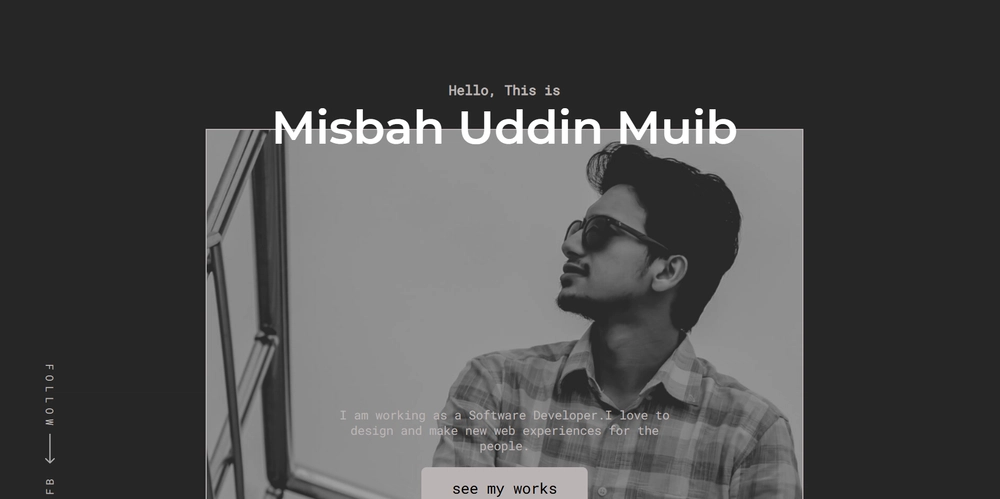Unlocking Digital Identities with Fragment: How to Buy Usernames, Secure Digital Assets, and Embrace the Future
Abstract This post explores the process of buying usernames on Fragment—a digital marketplace dedicated to unique usernames—and expands on the digital identity ecosystem. We delve into the background and context of digital identities, outline core concepts and features of Fragment, present real-world applications, examine the challenges and limitations of the market, and discuss future trends and innovations. Throughout, we provide technical insights, practical tips, and useful links such as the original article on the subject, along with authoritative resources on blockchain, NFT valuation, and digital rights management. Introduction In today’s hyper-connected world, a unique and memorable username is more than just a handle—it is a digital identity. Whether you are an avid gamer, content creator, or professional influencer, your online persona often begins with the right digital moniker. Fragment steps into this evolving space by offering a trusted marketplace to buy and sell usernames. By providing a secure platform, Fragment aims to enhance transparency and safety in digital transactions. This blog post is designed for technology enthusiasts, software developers, and digital identity experts who wish to understand how to navigate Fragment’s marketplace and build a robust digital identity. We will use clear, technical language paired with accessible explanations to ensure that both novices and experts can benefit from this guide. Background and Context The digital revolution has transformed how we identify ourselves online. In traditional settings, a name is simply a personal identifier; however, when it becomes your digital identity, its potential value increases significantly. The emergence of blockchain technologies and NFT marketplaces has added an extra dimension to the concept of digital assets. With platforms like Fragment, owning a unique username—or even tokenizing your digital identity—has become a tangible way to secure your online presence. History and Evolution of Digital Identities Digital identity has evolved over the years: Early Internet Era: Initially, usernames were chosen without any formal transaction, often randomly selected to represent personal interests. Social Media Expansion: As platforms like Facebook, Twitter, and Instagram flourished, having a unique and recognized username became essential for branding. Blockchain Integration: With the rise of blockchain and NFTs, digital identities garnered new significance. Blockchain and digital identity platforms provide immutable proof of ownership and authenticity (learn more here). Fragment enters this landscape as a focal point for those wishing to invest in their digital reputation, offering an innovative approach to buying and selling usernames safely and securely. Core Concepts and Features Fragment acts as both a marketplace and a digital identity facilitator. The following sections detail the essential components of the platform and how they interconnect. Key Features of Fragment User Registration and Account Set-Up To participate, users must sign up via Fragment’s official website (Fragment). Registration involves: Entering basic personal information and email verification Creating a secure password for account safety Exploration and Filtering of Usernames Fragment provides a robust search feature: Filter results based on keywords, price range, popularity, and categories. View detailed information about each username, including historical usage and seller ratings. Evaluation and Pricing Structure Not all usernames hold the same value. Factors affecting price include: Length and Memorability: Short and catchy names often command higher prices. Demand and Rarity: Highly sought-after names come with premium tags. Relevance: A username must correlate with one’s digital persona. Fragment supports methods such as direct purchases or bidding to negotiate the final price. For insights into evaluating digital assets, refer to NFT Valuation. Secure Transaction Process and Rights Transfer Once you purchase a username, a seamless transfer of digital ownership ensues: Payment methods include credit cards, PayPal, and cryptocurrencies. Detailed guidelines ensure the secure transfer of username credentials. Steps to ensure fairness and transparency are aligned with principles highlighted in Blockchain and Digital Rights Management. Building and Monetizing Your Digital Identity Securing a unique username is only the first step. Building a digital identity involves: Consistent use of your username across multiple platforms. Incorporating custom branding elements like logos or graphics to enhance recognition. Maintaining a positive digital footprint across social networks. Below is a table summarizing the key features in relation to their benefits: Feature Benefit Additional Resource Registration & Account Set-Up Secur

Abstract
This post explores the process of buying usernames on Fragment—a digital marketplace dedicated to unique usernames—and expands on the digital identity ecosystem. We delve into the background and context of digital identities, outline core concepts and features of Fragment, present real-world applications, examine the challenges and limitations of the market, and discuss future trends and innovations. Throughout, we provide technical insights, practical tips, and useful links such as the original article on the subject, along with authoritative resources on blockchain, NFT valuation, and digital rights management.
Introduction
In today’s hyper-connected world, a unique and memorable username is more than just a handle—it is a digital identity. Whether you are an avid gamer, content creator, or professional influencer, your online persona often begins with the right digital moniker. Fragment steps into this evolving space by offering a trusted marketplace to buy and sell usernames. By providing a secure platform, Fragment aims to enhance transparency and safety in digital transactions.
This blog post is designed for technology enthusiasts, software developers, and digital identity experts who wish to understand how to navigate Fragment’s marketplace and build a robust digital identity. We will use clear, technical language paired with accessible explanations to ensure that both novices and experts can benefit from this guide.
Background and Context
The digital revolution has transformed how we identify ourselves online. In traditional settings, a name is simply a personal identifier; however, when it becomes your digital identity, its potential value increases significantly. The emergence of blockchain technologies and NFT marketplaces has added an extra dimension to the concept of digital assets. With platforms like Fragment, owning a unique username—or even tokenizing your digital identity—has become a tangible way to secure your online presence.
History and Evolution of Digital Identities
Digital identity has evolved over the years:
- Early Internet Era: Initially, usernames were chosen without any formal transaction, often randomly selected to represent personal interests.
- Social Media Expansion: As platforms like Facebook, Twitter, and Instagram flourished, having a unique and recognized username became essential for branding.
- Blockchain Integration: With the rise of blockchain and NFTs, digital identities garnered new significance. Blockchain and digital identity platforms provide immutable proof of ownership and authenticity (learn more here).
Fragment enters this landscape as a focal point for those wishing to invest in their digital reputation, offering an innovative approach to buying and selling usernames safely and securely.
Core Concepts and Features
Fragment acts as both a marketplace and a digital identity facilitator. The following sections detail the essential components of the platform and how they interconnect.
Key Features of Fragment
-
User Registration and Account Set-Up
To participate, users must sign up via Fragment’s official website (Fragment). Registration involves:- Entering basic personal information and email verification
- Creating a secure password for account safety
-
Exploration and Filtering of Usernames
Fragment provides a robust search feature:- Filter results based on keywords, price range, popularity, and categories.
- View detailed information about each username, including historical usage and seller ratings.
-
Evaluation and Pricing Structure
Not all usernames hold the same value. Factors affecting price include:- Length and Memorability: Short and catchy names often command higher prices.
- Demand and Rarity: Highly sought-after names come with premium tags.
- Relevance: A username must correlate with one’s digital persona.
Fragment supports methods such as direct purchases or bidding to negotiate the final price. For insights into evaluating digital assets, refer to NFT Valuation.
-
Secure Transaction Process and Rights Transfer
Once you purchase a username, a seamless transfer of digital ownership ensues:
- Payment methods include credit cards, PayPal, and cryptocurrencies.
- Detailed guidelines ensure the secure transfer of username credentials.
Steps to ensure fairness and transparency are aligned with principles highlighted in Blockchain and Digital Rights Management.
-
Building and Monetizing Your Digital Identity
Securing a unique username is only the first step. Building a digital identity involves:
- Consistent use of your username across multiple platforms.
- Incorporating custom branding elements like logos or graphics to enhance recognition.
- Maintaining a positive digital footprint across social networks.
Below is a table summarizing the key features in relation to their benefits:
| Feature | Benefit | Additional Resource |
|---|---|---|
| Registration & Account Set-Up | Secure access and personalized platform experience | Fragment Registration |
| Advanced Username Search | Quick filtering for ideal digital identities | Marketplaces for Tokenized Assets |
| Pricing & Bidding Options | Flexible spending and potential cost savings | NFT Valuation |
| Secure Ownership Transfer | Trusted process for transferring digital rights | NFT and Digital Identity |
| Digital Branding Integration | Consistent and impactful online presence | NFts and Digital Ownership |
Applications and Use Cases
Fragment extends beyond simple transactions. Here are practical examples of how different users can benefit:
1. Online Gaming and Virtual Worlds
For gamers, having a memorable username is critical. For instance:
- Case Study: A competitive gamer may choose a short, impactful name (e.g., “AcePilot”) to establish recognition across multiple gaming platforms and tournament leaderboards.
- Impact: The consistent use of such a username bolsters reputation, leading to potential sponsorships and collaborations.
2. Social Media Influencers and Content Creators
Influencers often thrive on digital identity:
- Real-World Example: A budding YouTube creator or Instagram influencer can secure a distinctive username that reflects their brand style. This consistency helps in brand recall and audience engagement.
- Tool Integration: Custom logos and associated graphics integrated with the username further enhance the digital aesthetic.
3. Startups and Professional Portfolios
Startups emphasize digital branding:
- Scenario: Professionals establishing a new tech startup might need a consistent username across domains, social media handles, and digital wallets.
- Outcome: A secured username on Fragment becomes a cornerstone for digital branding, building trust with potential investors and customers.
These examples illustrate how Fragment plays a vital role in shaping digital identities, providing both individuals and businesses with the tools they need for online success.
Challenges and Limitations
While Fragment offers a promising approach to digital identities, several challenges persist:
Market Volatility:
The value of usernames can be highly volatile, influenced by trends and shifting demands. Pricing structures in emerging markets are not yet standardized, which may lead to investment risks.Security Risks:
Although Fragment employs rigorous security measures, the risk of cyberattacks or fraudulent listings remains. Users must remain vigilant and ensure they transact with verified sellers.Adoption Hurdles:
Traditional users may resist using dedicated marketplaces for usernames until digital identity ownership becomes more mainstream. Furthermore, integrating blockchain features to validate transfers introduces additional technical complexities.Regulatory and Legal Considerations:
Digital assets reside in a gray area in many jurisdictions. As governments and international bodies develop new regulations for blockchain-based assets, Fragment and similar platforms might face compliance challenges.User Experience and Interface:
Technical users appreciate feature-rich interfaces, but non-technical users may find the initial sign-up and bidding process somewhat daunting. Simplifying the UI remains an ongoing challenge.
Bullet List of Key Limitations
- Volatile Pricing: Digital identity valuations can fluctuate rapidly.
- Security Concerns: Risk of fraud and cyber threats if not properly managed.
- Regulation Uncertainty: Ambiguous legal frameworks for digital asset transactions.
- Adoption Barriers: New users might struggle with the initial technical learning curve.
- Interoperability Issues: Integrating with various digital platforms can be complex.
Understanding these challenges is crucial for anyone looking to invest in digital identities. Knowledge of these issues prepares users for potential pitfalls and encourages the adoption of best practices.
Future Outlook and Innovations
The digital identity market is poised for significant evolution, with several trends shaping the future:
Emerging Trends
Integration with Blockchain Platforms:
The use of blockchain to secure digital identities is already underway. Advanced platforms incorporating decentralized identity frameworks—like Arbitrum and decentralized identity—are expected to gain traction. Blockchain not only provides transparency but also enhances security.Cross-Chain Interoperability:
Cross-chain bridges, as discussed in articles like Arbitrum and Cross-Chain Bridges, will allow a username or digital asset to be recognized across multiple blockchain networks, thereby extending its utility and value.Rise of NFT Marketplaces:
With the growing interest in non-fungible tokens (NFTs), digital identities might eventually be tokenized. This trend connects platforms like Fragment to broader NFT marketplaces, reinforcing the importance of NFT and Digital Identity concepts.Enhanced Digital Rights Management:
Innovations in digital rights management and secure credential transfers are creating a more resilient ecosystem for transferring usernames. Efforts to merge blockchain digital rights management with user-friendly interfaces promise safer transactions.
Innovations on the Horizon
Improved User Interfaces:
As adoption increases, platforms like Fragment will invest further in developing intuitive user experiences, making the process of buying and managing digital identities as simple as possible.Integration with Social Media and Professional Networks:
Future iterations of digital identity solutions are likely to include a one-click identity integration feature, allowing users to deploy their usernames across various platforms seamlessly.Advanced Analytics and Valuation Tools:
Incorporating AI and machine learning may soon provide users with real-time data on username trends and asset valuations, helping to inform their purchasing decisions.Collaborative Ecosystem Partnerships:
With evolving ecosystems, digital platforms can form strategic partnerships with blockchain consortia and NFT marketplaces. For example, insights from projects such as Arbitrum and Ethereum Interoperability and Arbitrum On-Chain Governance shed light on future integrations.
Links from Dev.to for Additional Insights
For further reading on these innovations and their impact on the digital identity and open-source spaces, check out:
- Understanding the Dynamic World of Fragment Telegram Usernames
- The Future of Fragment Telegram: Anticipated Updates and Innovations
- Unveiling OpenMAMA License: Balancing Fair Code and Open Source Innovation
Embracing these trends, platforms like Fragment will not only simplify the process of buying usernames but also fundamentally change how we perceive identity in the digital era.
Summary
To sum up, acquiring a unique digital identity via Fragment is more than just buying a username—it is about investing in your digital legacy. This post has outlined:
- Introduction: The significance of digital identities and the role of unique usernames.
- Background and Context: How digital identities evolved from simple online handles to blockchain-verified assets.
- Core Concepts and Features: A detailed look into registration, exploration, evaluation, secure transactions, and branding on Fragment.
- Applications and Use Cases: Real-world examples in gaming, social media, and professional branding.
- Challenges and Limitations: An analysis of market volatility, security risks, and regulatory concerns.
- Future Outlook and Innovations: Forecasts include blockchain integration, cross-chain interoperability, advanced valuation tools, and seamless digital rights management.
Key Takeaways:
- Fragment is a pioneering digital marketplace offering a secure solution for buying usernames.
- Security and transparency in digital asset transactions are enhanced by blockchain integration.
- NFT innovations and cross-chain interoperability are set to redefine the way digital identities are built and secured.
- Future trends point toward a more user-friendly, integrated, and robust digital identity ecosystem.
Investing in a digital identity via Fragment can significantly enhance online brand recognition, user credibility, and long-term digital asset value. For detailed step-by-step guidance, revisit the original article. As the digital landscape continues evolving, staying updated on emerging trends—like blockchain and NFT market dynamics—is crucial for anyone navigating this complex but exciting world.
Final Thoughts
The transformation of online identities into valuable digital assets represents a radical shift in how we approach branding and identity in a connected world. Platforms like Fragment serve as a bridge between traditional online practices and innovative blockchain solutions. By understanding and utilizing these digital identity tools, you are not only securing a unique username but also positioning yourself at the forefront of a transformative digital era.
As you embark on your journey to unlock and assert your digital identity, remember to conduct thorough research, adhere to best practices, and stay abreast of emerging trends. Whether you’re a gamer, influencer, or entrepreneur, a well-chosen username can be the cornerstone of a memorable and resilient online presence. Moreover, broader innovations in decentralized identity management and cross-chain interoperability will only enhance the value of these digital assets over time.
By combining technical expertise with creative branding, users can not only protect their digital assets but also leverage them for future opportunities in an increasingly tokenized economy. As we move further into a future where digital identities carry economic and social weight, platforms that champion transparency, security, and interoperability will lead the way.
Stay informed, stay creative, and embrace the new era of digital identity with open arms.
Happy username hunting on Fragment!











































































































































































![[The AI Show Episode 142]: ChatGPT’s New Image Generator, Studio Ghibli Craze and Backlash, Gemini 2.5, OpenAI Academy, 4o Updates, Vibe Marketing & xAI Acquires X](https://www.marketingaiinstitute.com/hubfs/ep%20142%20cover.png)




























































































































![[DEALS] The Premium Learn to Code Certification Bundle (97% off) & Other Deals Up To 98% Off – Offers End Soon!](https://www.javacodegeeks.com/wp-content/uploads/2012/12/jcg-logo.jpg)


![From drop-out to software architect with Jason Lengstorf [Podcast #167]](https://cdn.hashnode.com/res/hashnode/image/upload/v1743796461357/f3d19cd7-e6f5-4d7c-8bfc-eb974bc8da68.png?#)








































































































.png?#)

































_Christophe_Coat_Alamy.jpg?#)
 (1).webp?#)





































































































![Apple Considers Delaying Smart Home Hub Until 2026 [Gurman]](https://www.iclarified.com/images/news/96946/96946/96946-640.jpg)
![iPhone 17 Pro Won't Feature Two-Toned Back [Gurman]](https://www.iclarified.com/images/news/96944/96944/96944-640.jpg)
![Tariffs Threaten Apple's $999 iPhone Price Point in the U.S. [Gurman]](https://www.iclarified.com/images/news/96943/96943/96943-640.jpg)




































































































































